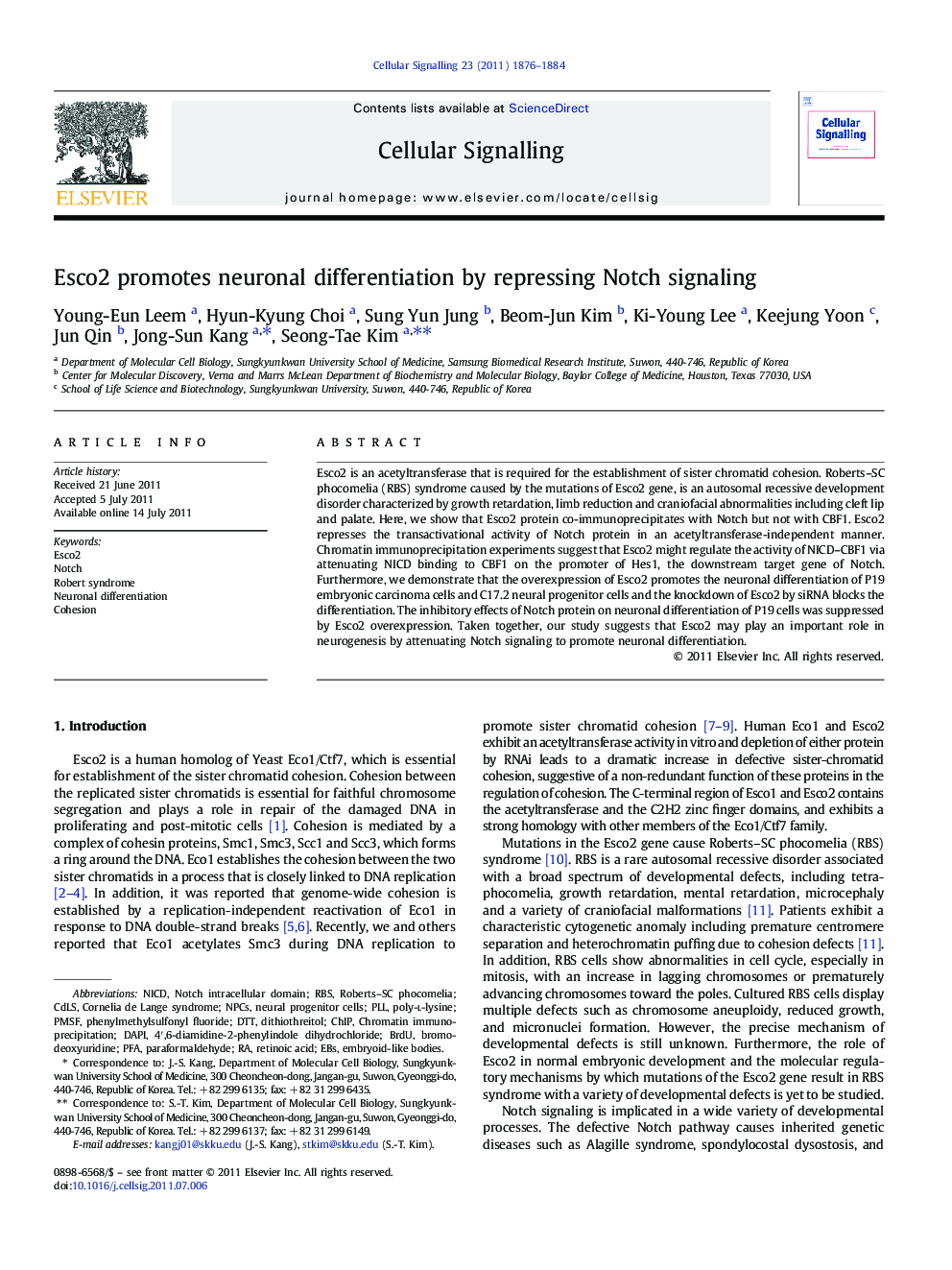| Article ID | Journal | Published Year | Pages | File Type |
|---|---|---|---|---|
| 1963655 | Cellular Signalling | 2011 | 9 Pages |
Esco2 is an acetyltransferase that is required for the establishment of sister chromatid cohesion. Roberts–SC phocomelia (RBS) syndrome caused by the mutations of Esco2 gene, is an autosomal recessive development disorder characterized by growth retardation, limb reduction and craniofacial abnormalities including cleft lip and palate. Here, we show that Esco2 protein co-immunoprecipitates with Notch but not with CBF1. Esco2 represses the transactivational activity of Notch protein in an acetyltransferase-independent manner. Chromatin immunoprecipitation experiments suggest that Esco2 might regulate the activity of NICD–CBF1 via attenuating NICD binding to CBF1 on the promoter of Hes1, the downstream target gene of Notch. Furthermore, we demonstrate that the overexpression of Esco2 promotes the neuronal differentiation of P19 embryonic carcinoma cells and C17.2 neural progenitor cells and the knockdown of Esco2 by siRNA blocks the differentiation. The inhibitory effects of Notch protein on neuronal differentiation of P19 cells was suppressed by Esco2 overexpression. Taken together, our study suggests that Esco2 may play an important role in neurogenesis by attenuating Notch signaling to promote neuronal differentiation.
► Esco2 represses the transactivational activity of Notch. ► Esco2 abrogates NICD binding to CBF1 on the promoter of Hes1. ► The overexpession of Esco2 promotes the neuronal differentiation of P19 and C17.2 cells. ► Esco2 plays an important role in neurogenesis by attenuating Notch signaling to promote neuronal differentiation.
